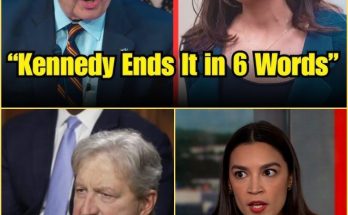 It started with a late-night petition — and ended with a political earthquake.
It started with a late-night petition — and ended with a political earthquake.
Less than 24 hours after Donald Trump requested to deploy the National Guard to Chicago, Illinois Governor JB Pritzker
and Chicago Mayor Brandon Johnson turned his move into a stunning public defeat.
Trump’s emergency filing to the Supreme Court claimed there was a “risk of rebellion” in Chicago — language that echoed his earlier attempts to federalize local unrest during his first presidency. But this time, even the nation’s highest court refused to play along.
When the Supreme Court denied his petition, the response from Illinois was swift, sharp, and impossible to ignore.
“Don’t Come.”

Governor Pritzker’s statement was just two words — but they landed like thunder.
“Don’t come,” he said flatly. “The deployment of federal troops without state consent would be an infringement on Illinois sovereignty — and if necessary, we will sue.”
Within minutes, his words trended nationwide. For many Americans weary of political theater, it was a reminder that state authority still mattered — that checks and balances weren’t relics of the past.
Legal analysts immediately noted that Pritzker’s planned lawsuit could mark a landmark battle over executive power. “This isn’t just a legal question,” one constitutional scholar told The Chicago Tribune. “It’s a question of who still controls America — the states or the man in the White House.”
Chicago Strikes Back
Meanwhile, Mayor Brandon Johnson didn’t mince words either. Standing before city hall, he accused Trump of “manufacturing chaos for control.”
“There is no rebellion in Chicago,” Johnson said. “There is only a city that refuses to be bullied.”
Then he went further — calling for a “No Kings” protest, a citywide demonstration scheduled for the weekend. The phrase quickly became a rallying cry across social media, painted on banners, graffitied on bridges, and projected onto skyscrapers.
From downtown to the South Side, thousands vowed to march, not just in defense of Chicago, but in defense of democracy itself.
The Power Shift
Trump’s aides tried to downplay the blow, calling it “a temporary setback.” But behind closed doors, sources described an atmosphere of fury and disbelief. The president had been publicly defied by two Democratic leaders — and by the Supreme Court itself.
Political commentators across both sides noted what had just happened: a complete inversion of power.
Trump had attempted to flex federal muscle, only to be met with constitutional resistance — not from Washington insiders, but from local officials who refused to yield.
“This was the day Trump met the wall of American federalism,” one analyst said. “And it wasn’t built out of concrete — it was built out of courage.”
A Symbol Beyond Chicago
The “No Kings” slogan has already spread far beyond Illinois.
In Boston, protesters projected it onto City Hall. In Los Angeles, artists painted it across an abandoned freeway wall.
The message is simple, almost old-fashioned — that no leader, not even a president, stands above the people.
And for many Americans over 45 who grew up hearing about checks and balances in civics class, it felt like déjà vu — a living civics lesson playing out in real time.
Trump may still hold the highest office in the land, but the events of these 24 hours sent a message louder than any executive order could:
America doesn’t bow to kings.
Melania’s $100,000 High Heels: The Untold Story Behind Her Iconic Look




